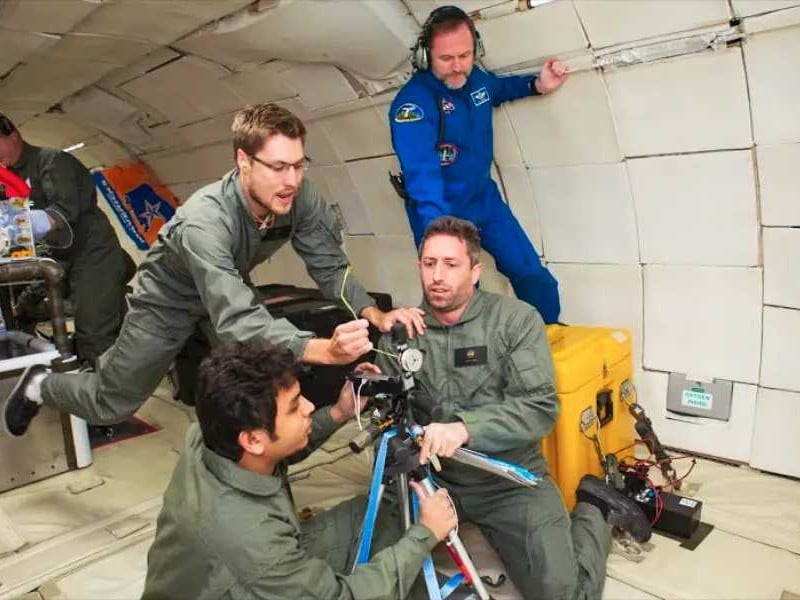Australian industry will be able to conduct research and manufacture products in space via the International Space Station and an Australian citizen will be able to become astronauts as part of a deal secured by Sydney tech firm Saber Astronautics.
Saber Astronautics has landed a deal with Axiom Space, a private US spaceflight company that is planning commercial missions to the International Space Station (ISS) and to own and operate a commercial space station by 2024.
As part of the deal, Saber will be working with Australian companies to establish a presence on the ISS to access its orbiting microgravity laboratory to develop new products in the health, materials, electronics and clean-tech industries.

There will be direct involvement from companies around Australians, and citizens will also be given the opportunity to become astronauts and be transported to the ISS to conduct the work.
There are enormous opportunities in space for Australian companies looking to research and manufacture products, Saber Astronautics CEO Dr Jason Held said.
“This is a slight difference on how Australia normally thinks about space and the space station. It’s usually seen as a research platform, but people are finding a whole bunch of industrial use cases for manufacturing things in orbit. Companies are starting to spend real money on producing things,” Dr Held told InnovationAus.
“There are commercial benefits for industries. The US, Russia and Europe have benefited from the ISS but Australia has had a very small amount of benefits. This deal is an opportunity to start framing a real industry around it. We’re trying to get in there in a way that we haven’t been able to before.”
There is a unique environment in space for manufacturing and product development, with a lack of gravity, easy access to cooling and a nearly 100 per cent sterile environment. This assists in a new generation of products with strong commercial potential, such as with near-perfect fibre optics and quantum computing.
Saber will now directly engage with local companies through a series of workshops around the country, with consortiums invited to apply to have a presence on the ISS. As part of this program, astronauts will also be selected from the Australian population, with no requirement to change citizens to the US or EU, as has previously been needed.
“It could be a huge deal, it depends on us and how much we want to do it. It could really bring us on top in terms of developing new products and having manufacturing in Australia that is genuinely competitive because it’s using an environment that other people are not,” Dr Held said.
“It would be massive for industry and a big money earner. The program will be funded by the products manufactured from industry, and industry keeps the IP.”
The program will be looking for companies specifically in the pharmaceutical, clean-tech, human health, fibre optics and quantum computing sectors.
“All those areas I think Australia can lead in. Quantum computing is an area I’m looking at very closely,” Dr Held said.
“What we’re really aiming to do in each state is to identify who the key stakeholders could be within those areas, what other creative ideas the market wants to develop that gives them a competitive edge and closed loop in each state.”
Saber also owns and operates the Responsive Space Operations Centre, a national mission control centre, from Adelaide and Colorado. This was established with a $6 million grant from the Australian Space Agency, and it will support next-generation capabilities for the space sector, such as concurrent design, pre-flight testing, launch support and live operations during flight.
Axiom was selected by NASA to add a number of privately developed modules to the ISS, with plans for an entirely commercial space station in the coming years.
It’s another significant milestone for the Australian space sector, which has been growing rapidly in recent years. The sector has been receiving more political interest of late too, following the establishment of the Australian Space Agency in mid-2018.
Do you know more? Contact James Riley via Email.

